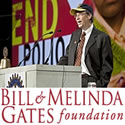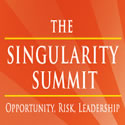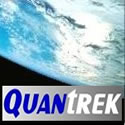THE EVOLUTION/ARCHITECTING OF SOCIETIES GLOBALLY IS MOVING ON A PREDICTED COURSE TO A POINT OF CATASTROPHIC CHANGE AS WE NEAR 2013 WHEREAT THE INHERENT INSTABILITY OF THE CENTRALIZED CONTROL OF A COLLECTIVE AS THE FORM OF ORGANIZATION WILL BE COMMONLY RECOGNIZED AS DESTRUCTIVE OF INDIVIDUAL AUTONOMY AND DELIMITING OF PERSONAL INQUIRY AND CREATIVITY.
The approach here tendered will focus on a Transhuman view of the completion of the third stage of the Age of Information via a Semiotic Relational Systems formulation and mechanization of a Synthetic Mind resident in an augmented embellishment of the Sixth Universe as a Universe of Autonomous Synthetic Minds InterRelated in Virtuality, but maintaining a MindClone connection to the Individual Human in Reality. This politically permits collective decision making (see the EcoGnomics conjecture), but maintains the commitment to the Individual-as-Whole as the ground for persisting personal autonomy.
To clarify a process expected to be used regularly in the AHA! Institute, beginning with this blog, the following explanations are in order. The focus of concern is on the fair use of the semiotic records of other minds (be they physically practicing at the time of such use or available only through the persistence of the media upon which during their physical sojourn, whether ongoing or lapsed, they so entrusted their acts). The dilemma then has to do with the “truth, relevance and goodness” of the recording of acknowledgement of the creatorship of those records so used, whether used intact or modified by the user, but without consent of their creator(s). Current practice has rules for uses such as the following, which, however, do not include the use intended herein: Citation – simple address of or pointer to the source, thereby simply admitting the possibility of some relation; Report – identifying the source, but attempting to maintain maximum emotional distance from the content conveyed; Interpretation — identifying the source, but conveying the content with a sense of a sympathetic [syn, “together” and pathos, “feeling”] relation; Argument — identifying the source, but conveying the content with a sense of a empathic [en, “in” and pathos, “feeling”] relation.
As to the use intended herein, the semiotic records of another mind, herein referred to as an Epi [epi, “beside”]-Virtual Mind (see the post in this blog entitled “MINDing one’s SELF” through the Technology of SYNTHETIC MIND: Minding the Economy), will be copied (with minor editing for context consistency, this obviously being a filter of this post’s author’s mind) to re-express a thought which seems to this author’s mind to also be in part conveyed by the circumscribed expression of the Epi-Virtual Mind. Hence, the DIALOG WITH EPI-VIRTUAL MINDS.
COLLABORATIVE FUTURES VISIONING
As an instantiation of this Dialog, we begin with one who is a first among firsts in the Mind Trust of the AHA!Institute, Eugene “Gene” Pendergraft, who retired from this physical plane in 1997, but now continues in the collaboration as an Epi-Virtual Mind. One such contribution to the Dialog, bringing novelty with each new reading, is the following privately distributed (1993) book which we (through As It Is, Inc. and The AutoGnomics Institute, Inc.) expect to print and publically re-distribute in the near-term future. What follows below in this Section are a few edited excerpts from this book assembled into a short supporting statement for the argument of this post.
Intelligence Based on Pragmatic Logic
by
Eugene Pendergraft
June 1993
“Henry David Thoreau (1984) lived in the woods at Walden Pond in Concord, Massachusetts, from 1845 to 1847. I see young men, my townsmen, he said, whose misfortune it is to have inherited farms, houses, barns, cattle, and farming tools; for these are more easily acquired than got rid of. Better if they had been born in the open pasture and suckled by a wolf, that they might have seen with clearer eyes what field they were called to labor in. But men labor under a mistake.
That men labor under a mistake, under the inherited idea that they receive rather than create information, is the field of argument that Charles Sanders Peirce was called to labor in.
The study Peirce first called ‘pragmatism’ introduced into philosophy ‘a method of ascertaining the meaning of hard words and abstract conceptions’. The specific purpose of this pragmatic method, according to its inventor, was to clarify traditional metaphysical questions by assessing their conceivable practical effects.
The significance of Peirce’s philosophical argument lies in his profound sense of the fallibility and yet supreme values of honest, persevering inquiry by individual minds sharing a common desire to learn and a common faith that an indefinite community of such investigators must sooner than later discover the truth and the reality corresponding to it. To this attitude Peirce gave the name ‘scientific intelligence’.
Upon this first, and in one sense this sole, rule of reason, that in order to learn you must desire to learn, and in so desiring not be satisfied with what you already incline to think, there follows one corollary which itself deserves to be inscribed upon every wall of the city of philosophy: DO NOT BLOCK THE WAY OF INQUIRY!
Modern industrial society, as presently organized, is colliding violently with our planet’s ecological system. Will this juggernaut continue to devastate the earth no matter what any of us does?
Not so! The weight of history is against such a conclusion. Humankind has always responded to the possibilities of a better logic by taking up its intellectual habits, the new patterns of thinking that it recommends. This is not to say that men and women listen eagerly for or to logical arguments. Practical men do not study logic, Peirce observed wryly, because invariably they believe they think logically already. An obsolete logic, one prone to error, cannot be cajoled or shamed out of existence; it must be bypassed by corrective logical arguments. So the makers of innovative logical arguments, of which Peirce is a prime example, must have above all a clear conception of why and how this bypassing of unwanted error can be done.
The good news is that central economic planning, as done by bureaucrats in the common interest of society, has become a discredited industrial policy. The bad news is that the free-market economy, as run by high-salaried executives in pursuit of one’s own interest in competition with others, is on the way to becoming, and is destined to become, a discredited industrial policy.
Peirce’s philosophic vision is able therefore to play an increasing role in shaping our philosophical attitudes to the central problem of our contemporary culture: the humanizing of the sciences and their dealings with the moral and educational phases of our industrial age. Peircian pragmatism may best be viewed as American thought regarding the problem of creating attitudes among scientists and the public that will converge on mankind’s common afflictions of bigotry, ignorance, poverty, war and disease.
In sum, I offer this image of our future. The market place of ideas, the rough-and-tumble of one idea struggling against another for a place in existence, probably must succumb to purely formal tri-relative analytical, classificatory, and valuational procedures which implement semiosis, a potentially intelligent, continuously evolving sign process. Every operation of semiosis is governed by law, and is mechanizable. Actual mechanization of man-like modes of semiosis, now in prospect, will spark the third and final phase of our information age [from information processing to robotic(artificial)intelligence to semiosis as synthetic intelligence].
The way out of ignorance and into a better light is that the public, as against the professional, learn a sufficiency of scientific facts and principles. Still, many creative people will prefer mystery. Religions and exotic cults will expand their scope toward administering emotional support to quixotic men and women, for whom lasting relationships will reflect an addiction and willingness to change. Inhabitants of the sixth universe will be autonomous men and women, unmanageable though quite open to suggestion.
So we will journey to our future world, the sixth universe of humankind, by our own mental efforts. Will the people follow? The ‘laws’ that we guess out probably must become the myths of this anticipated ‘New Age’, simply because men and women of an information age will desire to learn ‘most speedily’. For everyone, the new conditions for survival will be: to take habits from others; to inquire, ‘Where am I now?, ‘Where do I want to be?’, ‘How will I get there?’; and to adopt for oneself the admirable case, the desirable result, and the trustworthy rule.
I do want to discuss the processes and products of scientific consciousness, though only in so far as they bring to reflection organizing principles for the new reality pressing upon us. Most of the principles to be discussed have been long at hand within technical literature. Simply by doing our homework, each of us may know and use them privately. Against these principles ordinary people should be able to measure things in order to see whether those parts of their world are trustworthy. What significant things, things we cherish or despise, can be expected to endure or drop out of existence?
By ‘organizing principles’, then I mean principles that shape our expectations about tomorrow. They communicate to us the FUTURE’S VOICE.”
DO NOT BLOCK THE WAY OF INQUIRY!
THE COLLECTIVE VS. THE WHOLE
TOTOSYSTEMS vs. HOLOSYSTEMS
THE PROBLEM/DILEMMA/PARADOX IN SIGNIFYING “THE WHOLE”
RESOLVING THE PROBLEM/DILEMMA/PARADOX OF TOTOSYSTEMS: APPROACHING THE WHOLE AS HOLOSYSTEM
THE SIXTH UNIVERSE (OF MIND)
This approach proposes the AutoGnome(TM) (Synthetic Mind) as a technological solution to the World-wide societal crises due to the collective diminution of individual personal autonomy, but now exacerbated by the growing scarcity in distribution of resources necessary for human sustainability. The immediate technology is the IntellisiteTM, an Intelligent Website branded as TrueThinker(TM) (http://www.truethinker.com/). Functioning as a MINDClone(TM) (Virtual Self) for the Human user in Reality, this technology will dramatically Augment Human Intelligence while moving toward an Autonomous Synthetic Intelligence/Mind. This strategy pre-views an approach in retrospect from a vision of a Transhumanist Future Culture/Society imported into the current thinking regarding societal reform. This work, now in commercial deployment, is intended to foster a revolution which is expected to ultimately (as we approach the Human-Posthuman Singularity between 2036 and 2063) completely reinvent society throughout the Globe.
See also the following posts in this blog:
- “MINDing one’s SELF” through the Technology of SYNTHETIC MIND: Minding the Economy
- http://relatedone.blogspot.com/2008/10/minding-ones-self-through-technology-of.html
- MIND Creating MIND: A CoCreative Re-Evolutionary Act {Re:SYN5-Prologue1}
- http://relatedone.blogspot.com/2008/03/mind-creating-mind-cocreative-re.html
- MIDWIFING “THE AGE OF RELATION” (Expected Delivery in 2012-2013){Re:SYN7-(R)Ev}
- http://relatedone.blogspot.com/2007/12/aha-institute-relational-systems-re.html









Mon, Nov 10, 2008
R. ELATED MIND TRUST